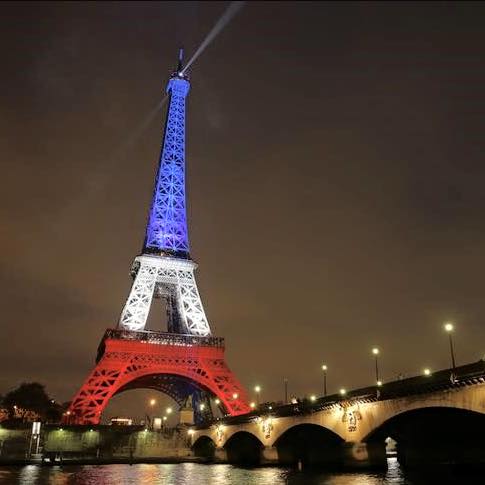 In the aftermath of the Paris attacks, something insidious is happening on social media. Quite rightly, people are trying to make sense of the senseless by sharing their thoughts and emotions, and showing solidarity with and sympathy for the French people. Whether you live in Spain or the UK, France is a near neighbour, and many of us have visited there, possibly numerous times, for holidays of which we have very happy memories. Most of us were also forced to learn French at school, so we have strong ties with the people and the country. People are articulating all this on Facebook and Twitter, and it's good - that's one of the things that social media is great for.
In the aftermath of the Paris attacks, something insidious is happening on social media. Quite rightly, people are trying to make sense of the senseless by sharing their thoughts and emotions, and showing solidarity with and sympathy for the French people. Whether you live in Spain or the UK, France is a near neighbour, and many of us have visited there, possibly numerous times, for holidays of which we have very happy memories. Most of us were also forced to learn French at school, so we have strong ties with the people and the country. People are articulating all this on Facebook and Twitter, and it's good - that's one of the things that social media is great for.
What isn't so great is that other people are shaming those who are still in shock about the Paris attacks because they are not showing the same level of empathy for victims of atrocities in other parts of the world. If you changed your profile to show the French flag, it's seen by some people as an insult to other countries such as Lebanon who have also been attacked recently. Apart from the sheer logistic nightmare of showing solidarity for all with a flag change - how can you get all those flags on one profile avatar, for heaven's sake? - it's a sweeping judgment on the characters of strangers. Just because someone does or does not fly the French flag virtually - because people have also been attacked for not changing their profile pic - it doesn't mean they don't care.
Then they turn their wrath on the media, and say they don't give other atrocities such blanket coverage. Really, some people just need to get out more, don't they? Because the media does report on everything, but the reason they appear to neglect some events and not others is down to us as consumers of news, not the media.
Most people - myself included - are guilty of skimming over the headlines first. Let's face it, who has time to read all the news in depth, every single day? Not so long ago, we relied on the newspapers and the television or radio news to keep us up to date on current affairs. Most people could only afford one newspaper, and they would read that cover to cover. These days, newspapers are relatively cheap, so you could buy half a dozen if you wanted to. Then there are online papers, dedicated news channels and websites, and opinion pieces by the million. It's impossible to keep up with everything, so we get more selective with our news consumption.
If we don't see a connection with a story - either geographical, cultural or emotional - we move on. Then we forget what we've read because we didn't engage fully with the piece. For example, most people remember reading about the 250 kidnapped Nigerian schoolgirls abducted by Boko Haram in April 2014 - they were children, so we read and remembered, because a lot of those reading are parents and grandparents. They can identify with other parents the world over. But reading about the same number of adults abducted or killed in a country we can't even find on the map is not going to make the same lasting impression.
And let's face it, there are so many atrocities these days, we get confused about the ones we've read about, unless we have a personal connection of some sort. It's sad, but it's the way it is. Actually, there have always been more atrocities than we could ever know about, but they are more likely to be reported in detail these days, because we have the technology and it's cheaper to send correspondents to all the corners of the earth.
Then, because it's human nature not to admit that you didn't care about an atrocity enough to read all about it, some people come out fighting and accuse the media of ignoring it. Worse, they accuse other people of not caring about tragedies for all sorts of reasons - usually involving race and/or religion. What right does anybody have to judge strangers on whether or not they post their grief on Facebook or Twitter?
We can't all feel the pain for all the evils of the world. All we can do is empathise with things that touch our hearts. It doesn't mean we don't care - it just means we are human.
For more from me, check out Sandra in Spain.com